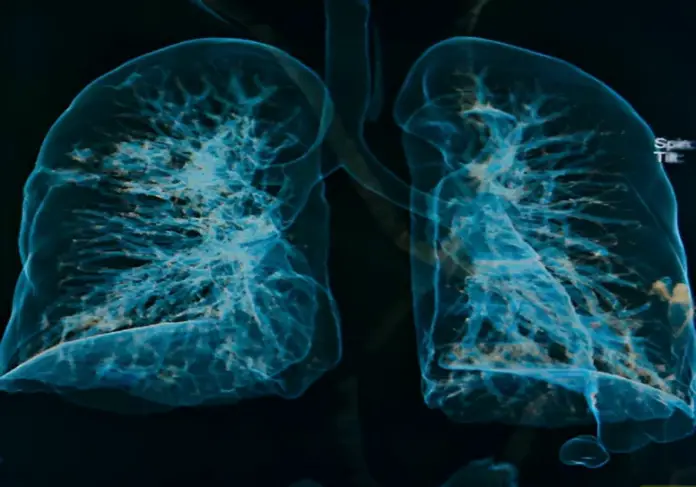According to a recent study, artificial intelligence (AI) can assist in determining a nonsmoker’s risk of lung cancer. According to experts, the “CXR-Lung-Risk” AI engine analyzes standard chest X-ray pictures to search for trends linked to lung cancer.
Results of the AI program’s identification of chest X-rays were to be presented on Wednesday at the annual meeting of the Radiological Society of North America in Chicago.
Dr. Michael Lu, a senior researcher and director of artificial intelligence at Massachusetts General Hospital, co-directs the Cardiovascular Imaging Research Center. “This AI tool opens the door for opportunistic screening for never-smokers at high risk of lung cancer, using existing chest X-rays in the electronic medical record,” he said.
“Since cigarette smoking rates are declining, approaches to detect lung cancer early in those who do not smoke are going to be increasingly important,” Lu stated in a press release about the gathering.
The most frequent cause of cancer-related mortality is lung cancer. The American Cancer Society estimates that there will be over 127,000 lung cancer fatalities and close to 240,000 new cases of lung cancer in the US this year.
According to background notes from researchers, between 10% and 20% of lung cancers happen in people who are referred to as “never-smokers”—individuals who have never smoked or who have smoked fewer than 100 cigarettes in their lifetime. Due to the substantial correlation between smoking and lung cancer, the U.S. Preventive Services Task Force suggests low-dose CT scan screening as the only option.
Researchers put the AI to the test on a group of 17,400 never-smokers after it had learnt patterns associated with lung cancer from those chest X-rays. All of these individuals had routinely undergone outpatient chest X-rays in 2013 and 2014. About 28% of the never-smokers had their AI marked as having a high risk of lung cancer, and 2.9% of them eventually received a lung cancer diagnosis.
The researchers contended that this well surpasses the 1.3% six-year risk threshold by which CT screening for lung cancer is advised by National Comprehensive Cancer Network guidelines.” A major advantage to our approach is that it only requires a single chest X-ray image, which is one of the most common tests in medicine and widely available in the electronic medical record,” Walia stated.







